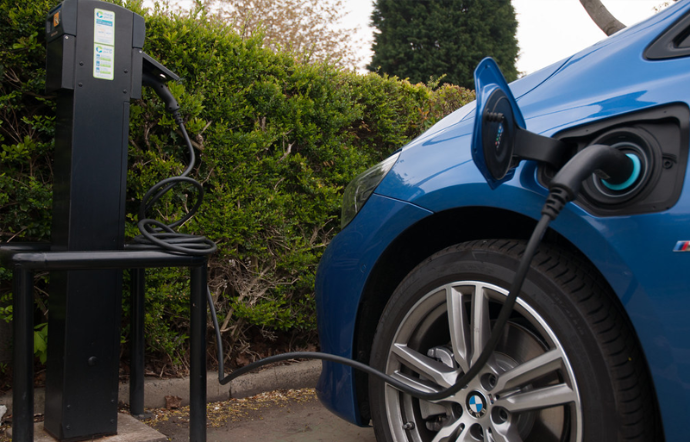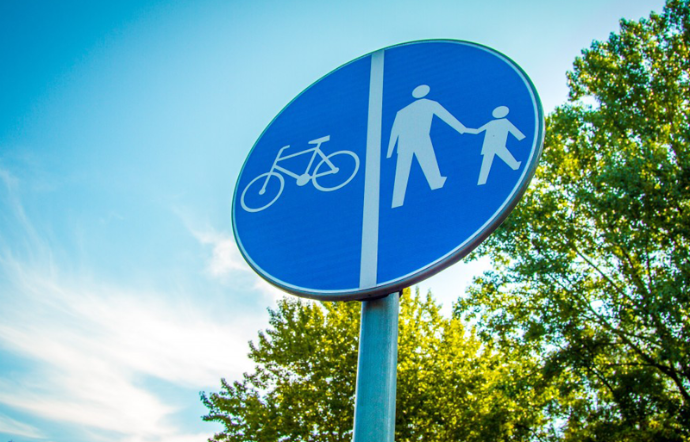Transport & Mobility
Transport accounts for a significant portion of carbon emissions, and encouraging sustainable travel is essential to reducing air pollution, improving public health, and making communities more connected. Parish and town councils can lead by promoting walking, cycling, electric vehicles, public transport, and car-sharing schemes to help shift residents away from private car use towards greener transport options.

Promoting Active Travel
Encouraging walking and cycling reduces emissions, improves public health, and supports vibrant local communities. Councils can create safe, accessible routes to encourage more people to choose active travel over car journeys.
Actions for Councils:
-
Develop cycling and walking routes by creating dedicated cycle lanes, pedestrian pathways, and safe crossings.
-
Work with schools to encourage walking and cycling to school by implementing School Streets schemes that limit traffic around schools at key times.
-
Provide bike parking and maintenance stations in town centres and public areas.
-
Support local cycling initiatives like the Cycle to Work Scheme to help residents afford bikes.
-
Promote active travel challenges such as Cycle September and Walk to School Week to encourage participation.
Useful links:
-
Sustrans – Safe Walking and Cycling Routes

Expanding Electric Vehicle Charging Points and Car-Sharing Schemes
Electric vehicles (EVs) produce zero exhaust emissions and are an essential part of the UK’s transition to a low-carbon transport system. Councils can support EV uptake by ensuring there is adequate charging infrastructure and by promoting car-sharing schemes to reduce vehicle ownership rates.
Actions for Councils:
-
Install EV charging points in public car parks, high streets, and community spaces.
-
Require new housing developments to include EV charging infrastructure in planning applications.
-
Partner with businesses and workplaces to install workplace chargers.
-
Encourage community EV car-sharing schemes, allowing multiple households to share electric vehicles rather than own individual cars.
-
Offer discounted or free parking for EVs in council-managed car parks.
Useful links:

Encouraging the Use of Public Transport and Community Transport Initiatives
Public and community transport options reduce car dependency, lower emissions, and provide affordable transport options for residents who may not have access to private vehicles. Councils can work with local bus, rail, and community transport providers to improve services and encourage greater usage.
Actions for Councils:
-
Work with local transport providers to improve bus frequency, reliability, and accessibility.
-
Provide subsidies for community-run transport schemes, such as minibus services for rural areas.
-
Develop integrated ticketing options that make public transport more convenient and affordable.
-
Create ‘demand-responsive transport services’ where smaller vehicles operate flexible routes based on resident requests.
-
Promote shared mobility options, such as community-owned minibuses, on-demand shuttles, and town centre electric taxis.
Useful links:
-
Better Transport Campaign – Improving Bus and Rail Services

Developing Low-Emission and Traffic-Free Zones
Reducing car traffic in high-footfall areas can significantly improve air quality, safety, and quality of life. Councils can create low-emission zones, school streets, pedestrian-friendly town centres, and car-free days to encourage more sustainable travel choices.
Actions for Councils:
-
Introduce Low-Emission Zones (LEZs) where only low-pollution vehicles are allowed, helping reduce air pollution in town centres.
-
Close roads to traffic during certain times to allow for pedestrian-only or cycling-friendly areas.
-
Implement School Streets schemes, banning cars near schools at drop-off and pick-up times.
-
Create Park and Ride schemes to reduce congestion and encourage public transport use.
-
Support car-free days or events that showcase how public spaces can be used differently without traffic.
Useful links:

Tidenham Parish Council
Tidenham Parish Council offers a community vehicle available to local groups within the parish. Funded through contributions from developers under Section 106 of the Town and Country Planning Act 1990, the initiative aims to improve air quality and provide accessible transport options. Community groups can register designated drivers and book the vehicle online. Read more

Totnes, Devon
Totnes has implemented a successful community car-sharing scheme to reduce reliance on private vehicles while expanding EV charging infrastructure throughout the town. The local council also promotes cycling initiatives, including secure bike parking and designated cycle lanes, making active travel a more viable and attractive option for residents. Read more

Disley Parish Council
Disley Parish Council introduced a not-for-profit community minibus service to improve local transport. For just £1, residents could become members and book travel, ensuring affordable and accessible transport for those without other options. The scheme helped connect people to services, reduce social isolation, and support sustainable travel in the area. Read more